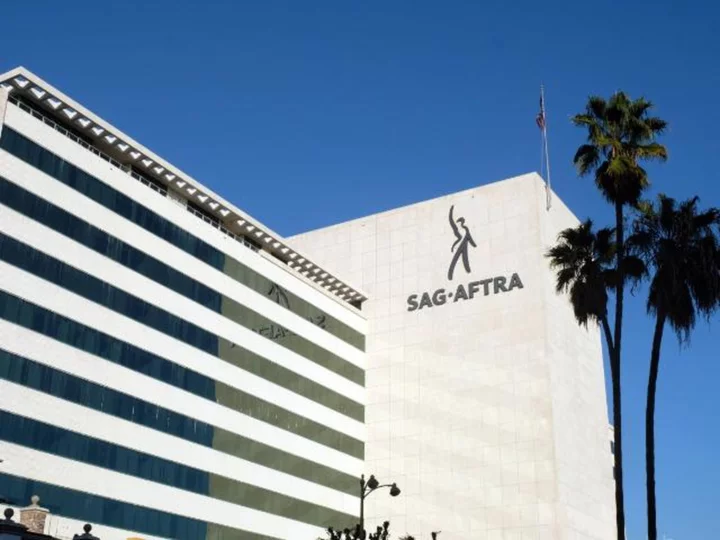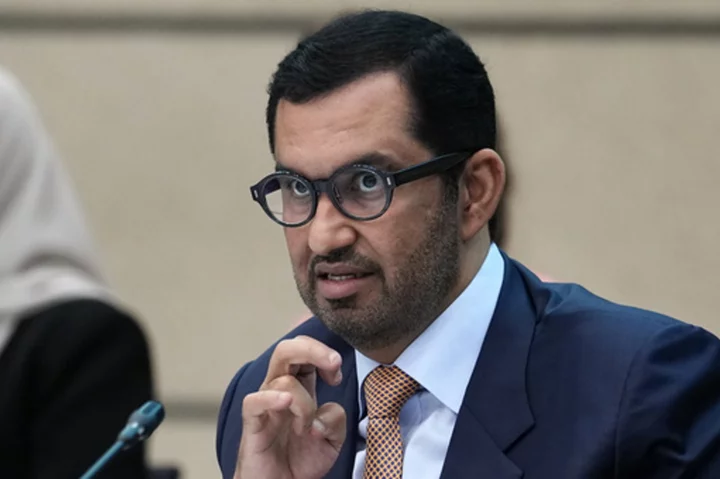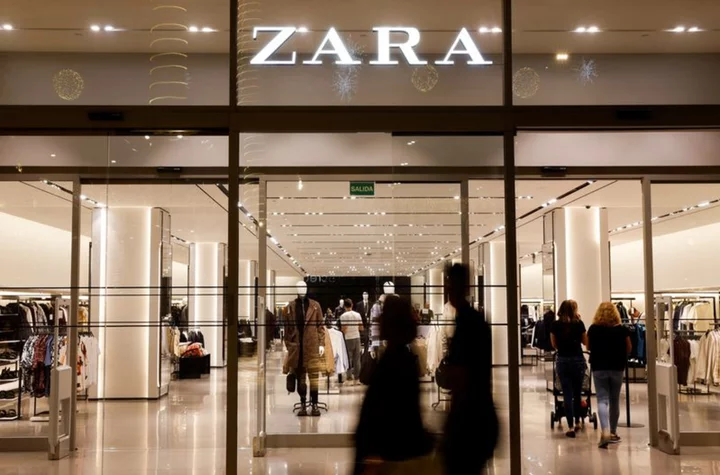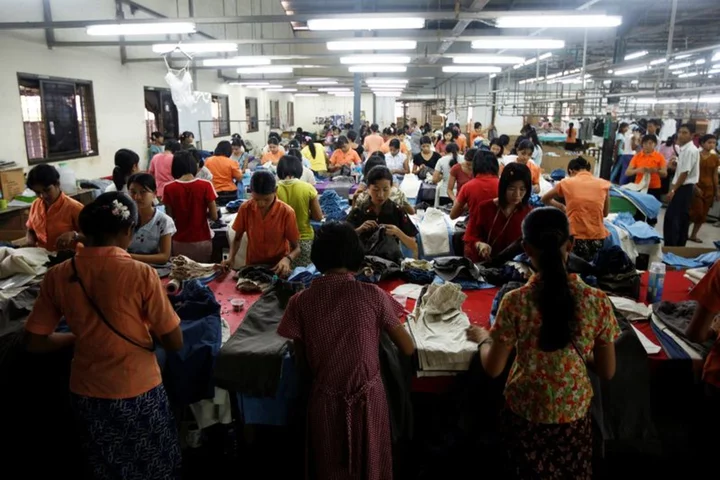Members of the union representing television and film actors have voted to authorize a strike against major studios if a new contract isn't reached by the time their current deal ends on June 30.
Members of the Screen Actors Guild — American Federation of Television and Radio Artists "voted 97.91% in favor of a strike authorization ahead of negotiations of the TV/Theatrical Contracts, with nearly 65,000 members casting ballots for a voting percentage of 47.69% of eligible voters," according to a news release.
"The strike authorization votes have been tabulated and the membership joined their elected leadership and negotiating committee in favor of strength and solidarity," said SAG-AFTRA President Fran Drescher. "I'm proud of all of you who voted as well as those who were vocally supportive, even if unable to vote. Everyone played a part in this achievement."
The vote does not mean a strike is certain. Negotiations for a new deal are set to start Wednesday. But the two sides are widely seen as far apart as the talks get underway. If the actors do walk out, they would join members of the Writers Guild of America already on picket lines.
More than 11,000 members of the WGA have been on strike for five weeks without any new negotiations being held in that time with the Alliance of Motion Picture and Television Producers (AMPTP). That management group negotiates on behalf of both traditional television and movie studios as well as streaming services. Companies include Amazon, Apple, CBS, Disney, NBC Universal, Netflix, Paramount Global, Sony, and CNN's parent company, Warner Bros. Discovery.
If the two unions find themselves on the picket lines together in July, they will be without a third major guild, the Directors Guild of America, which reached a tentative agreement on a new contract with AMPTP this past Saturday, about four weeks before its contract was due to expire.
Exact details of that deal have yet to be released, but the DGA said it represented "advances on wages, streaming residuals, safety, creative rights and diversity, as well as securing essential protections for our members on new key issues like artificial intelligence -- ensuring DGA members will not be replaced by technological advances." Some of those are the same issues the WGA has said it is striking for, and that SAG-AFTRA said it will be seeking in its own negotiations scheduled to start Wednesday.
But SAG-AFTRA and WGA both said their positions will not be weakened by the DGA reaching a tentative labor deal before they have reached their own agreements and that it won't force them to accept the deal that DGA has reached.
"Our bargaining strategy has never relied upon nor been dependent on the outcome or status of any other union's negotiations, nor do we subscribe to the philosophy that the terms of deals made with other unions bind us," said Duncan Crabtree-Ireland, SAG-AFTRA's chief negotiator, in a message to members.
"The AMPTP divide and conquer strategy won't work this time," said a message to WGA members for the union's bargaining committee. "The AMPTP will not be able to negotiate a deal for writers with anyone but us."
Several industry experts said Monday that they were not surprised that DGA had reached a deal before the two other unions.
"Historically the directors have always reached quick conclusion with studios," said Tom Nunan, a lecturer at the UCLA School of Theater, Film and Television, as well as a film producer and writer. The DGA tentative deal "doesn't hurt the leverage or the pursuit of better working conditions for the writers and possibly the actors. But it doesn't necessarily help."
Both Nunan and other experts say they think that it is likely that actors will join the writers on the picket lines next month.
"I think there's a significant difference [between studios and actors] on wage increase, residuals, artificial intelligence and auditions," said Jonathan Handel, an entertainment attorney and author of the book, "Hollywood on Strike!: An Industry at War in the Internet Age." He puts the chance of an actors' strike at about two to one.
Some television shows, particularly late night shows that are written daily in order to be timely, have had their production halted by the writers' strike. Some shows and films that have had scripts already completed have continued to film since the writers went on strike. However, a strike by the actors would bring production to a halt in most cases, threatening the start of the traditional fall television season as well as major films that are planned for late this year or in 2024.
But studios might be willing to take a prolonged strike, especially with many of them in cost cutting modes with greater emphasis on proving their profitability to investors. Many major media and tech companies have already announced deep layoffs and other cost cutting measures in recent months.
"The studios have shown no inclination to engage the writers," said Nunan "The studios and streamers are already in a huge cost cutting mode. The strike is working for the studios and streamers."









